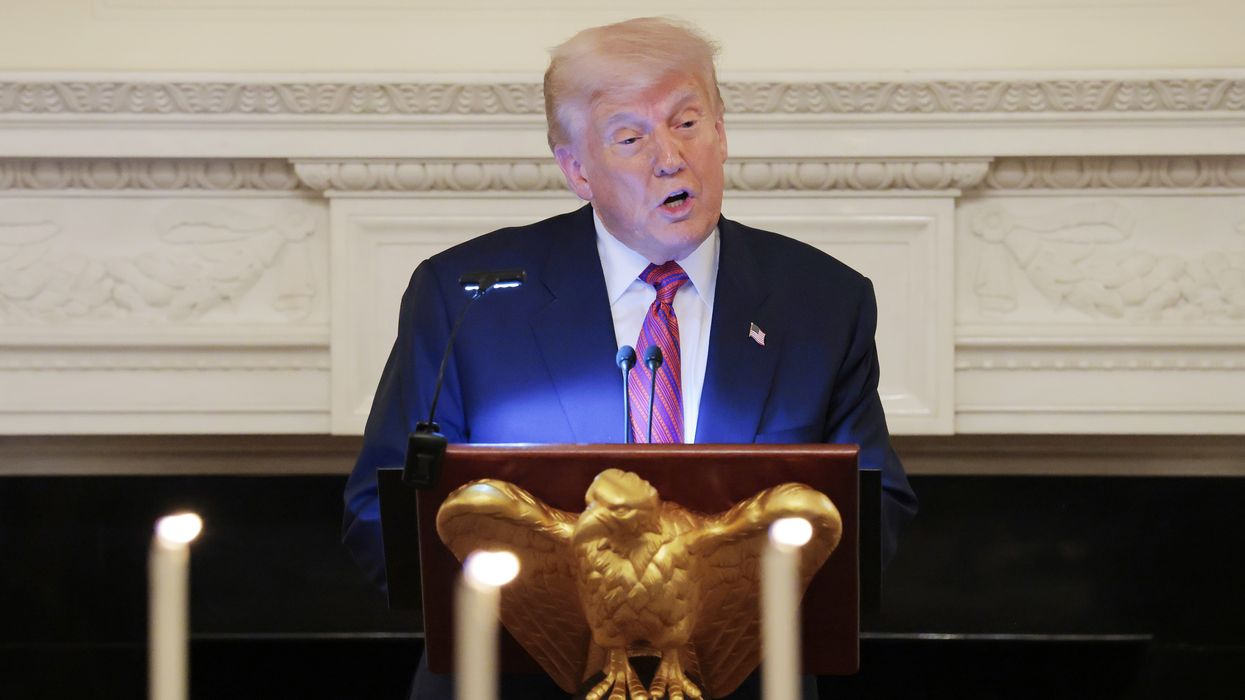HIGHLIGHTS:
- Trump announces 25 per cent tariff on Indian goods starting August 1
- US signs new trade and oil development deal with Pakistan
- Opposition in India calls tariff a diplomatic failure
- Economists warn India’s growth could be hit by up to 40 basis points
US PRESIDENT Donald Trump has imposed a 25 per cent tariff on Indian goods and announced a trade deal with Pakistan to jointly develop its “massive oil reserves”. The moves have drawn strong political reactions in India and reshaped regional trade dynamics.
Trump said on Truth Social, “We have just concluded a deal with the country of Pakistan, whereby Pakistan and the United States will work together on developing their massive oil reserves. We are in the process of choosing the oil company that will lead this partnership. Who knows, maybe they’ll be selling oil to India some day!”
It is unclear which reserves Trump referred to. Pakistan has long claimed to have oil deposits along its coast but has not been able to exploit them. The country currently imports oil from the Middle East.
Pakistan’s prime minister Shehbaz Sharif thanked Trump for the “historic” trade agreement. “I wish to convey my profound thanks to president Trump @realDonaldTrump for his leadership role in finalization of the historic US-Pakistan trade agreement, successfully concluded by our two sides in Washington, last night,” he wrote on X. “This landmark deal will enhance our growing cooperation so as to expand the frontiers of our enduring partnership in days to come.”
Radio Pakistan reported the agreement was concluded in Washington during a meeting between Pakistan’s finance minister Muhammad Aurangzeb, US secretary of commerce Howard Lutnick, and US trade representative ambassador Jamieson Greer. It said the deal would boost trade, expand market access, attract investment and promote cooperation in sectors including energy, mines and minerals, IT, and cryptocurrency.
Tariff threat triggers political backlash in India
Trump confirmed the 25 per cent tariff on Indian exports will take effect on August 1. He added an unspecified penalty over India’s Russian dealings and its membership in the BRICS grouping. Calling India’s trade policies “most strenuous and obnoxious”, he wrote, “All things not good! India will therefore be paying a tariff of 25 per cent, plus a penalty for the above, starting on August first.”
While confirming ongoing talks, Trump said, “…We are going to see, we're negotiating with India right now,” describing India’s tariffs as “one of the highest tariffs in the world”.
India’s government said it had “taken note” of the announcement and was committed to pursuing a “fair, balanced and mutually beneficial” trade agreement with the US.
Opposition parties called the tariff a diplomatic failure. Congress submitted a notice in parliament demanding a debate on the “government's economic and diplomatic failure in preventing the imposition of 25 per cent US tariffs plus penalties on Indian exports”.
“This development reflects a broader collapse of foreign policy under the Modi government,” a Congress lawmaker said. Commerce minister Piyush Goyal is expected to brief parliament on the matter.
Economic and market impact
Economists warned the tariffs could hurt India’s manufacturing plans and shave up to 40 basis points off growth for the year ending March 2026.
Markets reacted to the news, with the Nifty 50 and BSE Sensex falling about 0.6 per cent each. The rupee dropped to 87.74, its lowest in more than five months, before recovering slightly.
Priyanka Kishore, an economist at Asia Decoded, said, “While further trade talks may bring the tariff rate down, it appears unlikely that India will secure a significantly better outcome than its eastern neighbours.”
US tariffs higher on India than other countries
The US tariff on India is higher than on other countries: 20 per cent on Vietnam, 19 per cent on Indonesia, and 15 per cent on Japanese and European Union exports.
Trump’s announcement of the Pakistan deal and increased engagement with Islamabad comes after the India-Pakistan conflict in May, which has strained US-India trade talks. Congress said, “The country is now bearing the cost of Narendra Modi's friendship.”
Russia remained India’s largest oil supplier in the first half of 2025, making up 35 per cent of its imports. Trump wrote, “I don’t care what India does with Russia. They can take their dead economies down together, for all I care.”
(With inputs from agencies)





